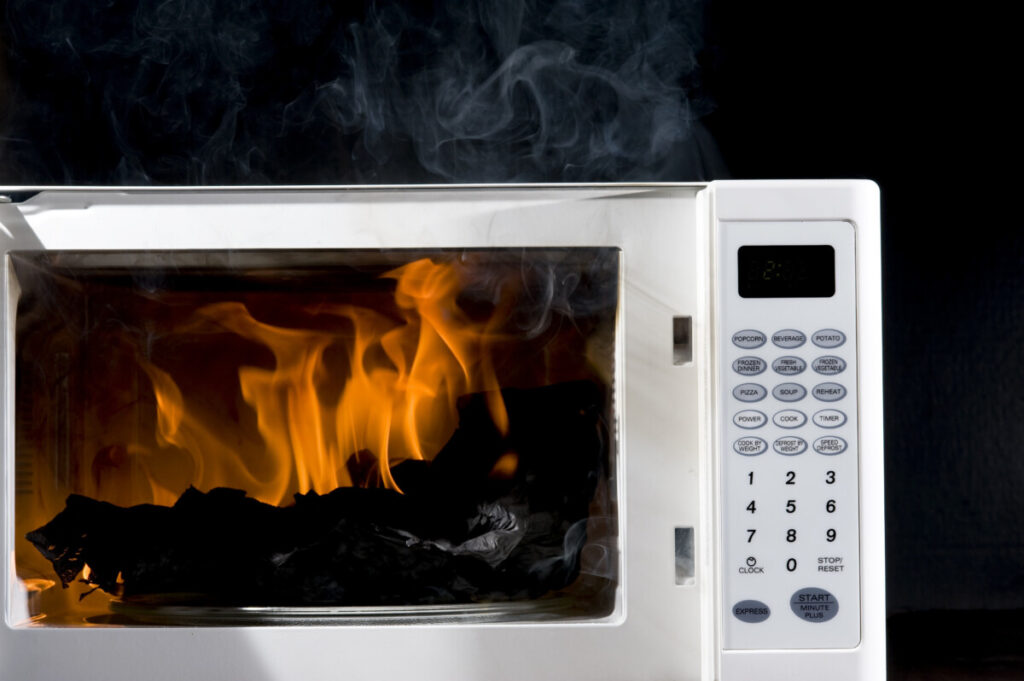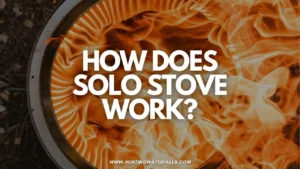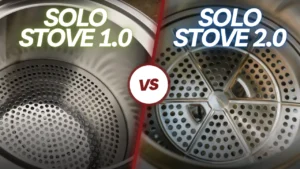Microwaves are a very safe and easy way to reheat food. However, is it possible for a microwave, or the food in the microwave, to actually catch on fire? Why does this happen and what can you do if your microwave begins to combust into flames.
Microwaves can catch on fire. This is usually due to electrical wiring in the microwave burning out or by paper, cardboard or aluminum foil heating up so much in the microwave it creates sparks or combusts into flames when it's microwaved for too long. Even certain foods can catch on fire if microwaved too long.
This might sound a little frightening, especially if you were previously unsure about a microwave's ability to start fires. However, you don't need to worry if you know how to safely use your microwave and what to do if a fire does start. Read on for some helpful safety tips or check out my article on why your microwave caught on fire and what to do about it.
What Causes Microwave Fires?
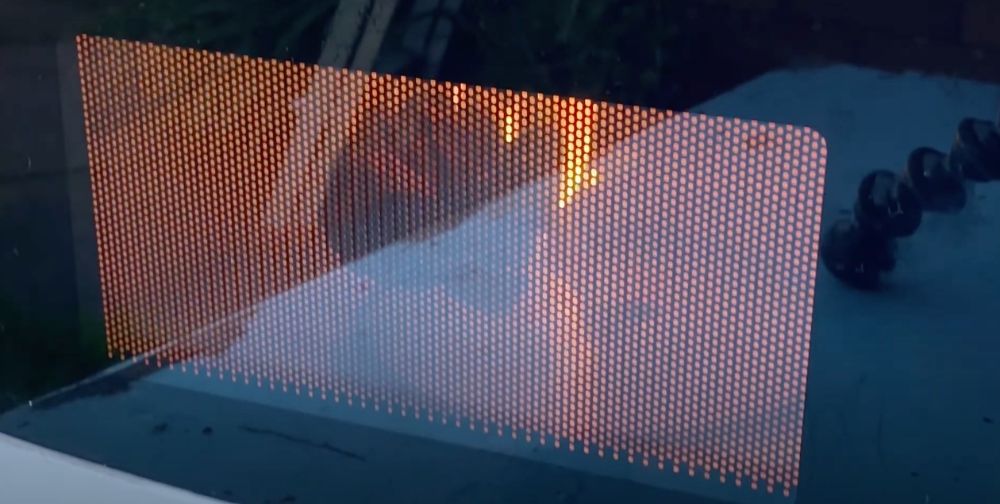
Microwave fires are most commonly caused when a dry object comes into contact with it or has been microwaved inside it.
You should always check your dishes before microwaving, especially if they are made of plastic, to ensure they are microwave safe. Plastic dishes (or casings/wrappers) can easily melt and let off toxic fumes. This may not always start a fire, but it's not something you'll want to deal with.
Paper is another tricky one. There are certain, microwave-safe paper casings that you can put in the microwave (such as a microwave popcorn bag) but always exercise caution.
Paper towels are commonly used to reheat food and when done for short periods of time or when the paper towel is wet the chance of a fire is extremely small. However, when scrunched up or put in the microwave for too long paper towels are notorious for catching on fire. Here's why your paper towel caught on fire in the microwave.
One of the most common causes of microwave fires is when somebody microwaves a metal component. I learned the hard way once that microwaving enchiladas wrapped in tin foil is one of the worst things you could do.
Microwaving metal will cause sparks to fly and if left unattended, an electrical fire. Even something as small as a twist tie could start one so be extra careful.
Interesting I found through my experiments that microwaving aluminum trays was fine whereas microwaving cardboard could lead to smoke and fires.
What to Do If Your Microwave Catches on Fire
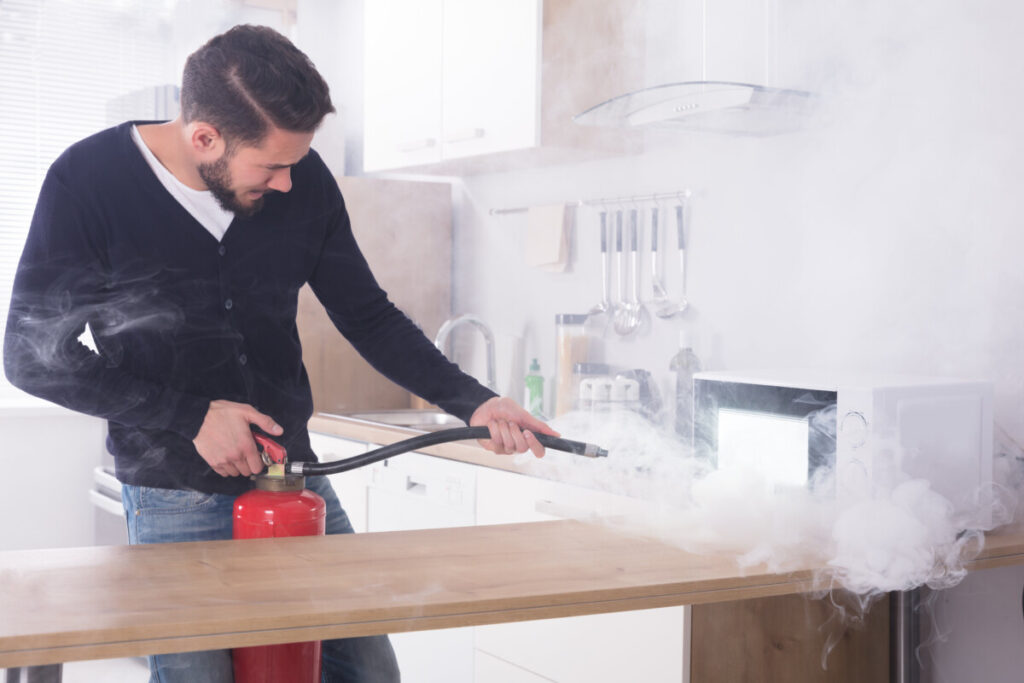
Even if you know every caution tip in the book, you might still find yourself facing a microwave fire at some point. However, this is not something you need to be afraid of if you know how to deal with it if and when it happens. Here are some things you can do in the event of a fire!
Turn The Microwave Off Immediately!
If you see things sparking inside the microwave while it's in use, you should, of course, immediately stop the microwave.
Don't open it until the sparks quit flying! Push the power button off and wait for things to calm down, or better yet completely unplug the microwave from the wall.
If you notice this in time, you may be able to prevent those sparks from getting bigger and igniting whatever you're microwaving.
Here's what to do if your microwave is filling up with smoke.
You should unplug your microwave right away because if you act quickly, you may be able to stop a fire from occurring. However, you should only unplug it if you are safe to do so. This means you shouldn't put yourself at risk of being electrocuted or burned badly.
Put Out The Fire With a Fire Extinguisher or Water
Hopefully, you, like many other homeowners, have a fire extinguisher under your kitchen sink. You can use a Class C fire extinguisher on your microwave if things happen to get too far out of hand. Keep your extinguisher in an easily-accessible place and grab it if a fire has started inside your microwave.
Call 911
As your last resort, call the fire department through 911. If you have tried to let the fire smother or use an extinguisher and it hasn't worked, you should get away from the fire quickly.
Use your good judgment as best you can. If you can stop the fire, stop it by all means. However, if it becomes apparent that you are going to lose control of the fire, you should call the fire department immediately. The damage will be minimized if help is called in as soon as possible.
Safety Tips: Avoiding Microwave Fires
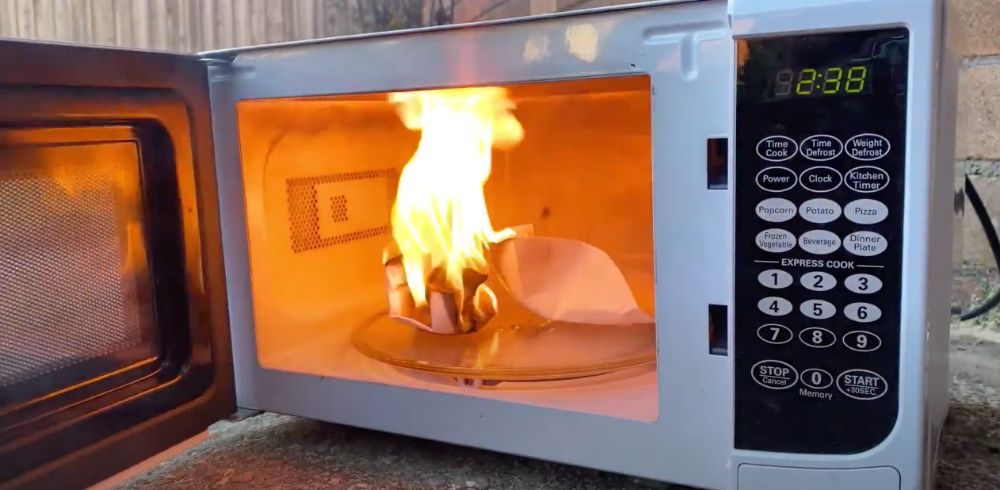
Now that you know how to deal with microwave fires, we should talk about how to avoid them completely! Of course, life is unpredictable and you won't be able to foresee every circumstance. However, there are plenty of safety measures you can take to make sure nothing catastrophic happens inside your microwave!
Avoid Combustable Items Inside Your Microwave
First, you should do as instructed above and be extremely careful about what you put into the microwave. Avoid plastic and paper components that are not specifically microwave-safe/approved. And, of course, you should never microwave twist ties, tin foil, forks, spoons, knives, or other metal components either.
I tried microwaving a pizza box inside my microwave and it caught on fire after just a couple of minutes. Worst of all the fire was INSIDE the pizza box so I wouldn't have known until it was too late.
Supervise Your Food
One of the best things you can do is supervise your food while it's being microwaved. Not all microwaves are created equal and some can scorch food a lot faster than others can. Burning food is most definitely a fire hazard, so keep a close eye on whatever you're microwaving.
It will prevent your food from being burned as well as anything catching fire!
Read The User Manual
Since not all microwaves are created equal, it's probably wise to read the user manual/manufacturer's manual. In it will be listed safety tips, correct usage information, and more. This will help you get a better idea of exactly how powerful your microwave is as well as how to take care of it and, of course, prevent fires!
Avoid Escaping Steam Which Can Lead To Burns
It may not start a fire, but escaping steam from cooking food can pose a threat to your hands. Burns from microwaves can be severe, so exercise caution when you remove food from one. Using oven mitts is recommended and you should be doubly careful if you're removing a liquid that could slosh all over the place.
Teach Kids How To Use The Microwave Properly
If you have a house full of young and curious kids, you should carefully instruct them in microwave usage before they're allowed to tackle it on their own. Kids might dramatically overcook things which can become a fire hazard. They will also need instruction on the proper protection when touching hot food, otherwise, this could lead to some serious burns. If your microwave is in a place where kids can access it, make sure they know how to properly and safely use it.

